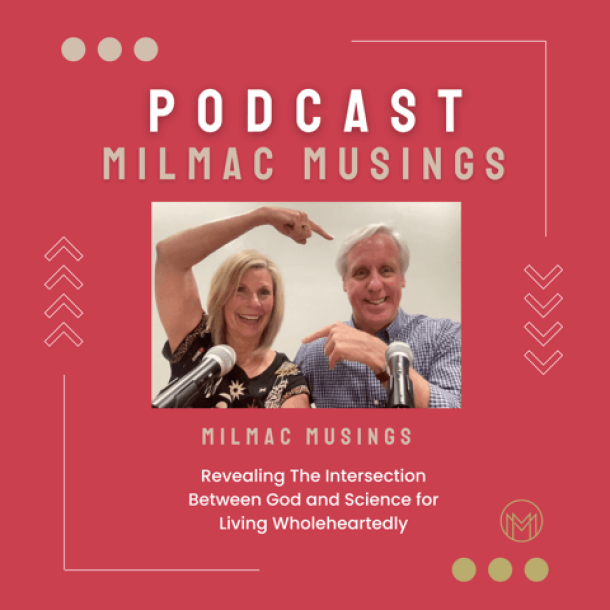The Hidden Costs of Parental Favoritism: Emotional & Spiritual Impacts

There are hidden costs of parental favoritism with emotional and spiritual impact. In our previous post we shared that parental favoritism, whether intentional or not, can severely damage the parent-child bond and leave lasting emotional scars. The children who are not favored experience deep feelings of resentment, inadequacy, and division within the family.
Unfavored children often experience jealousy, insignificance, anger, and identify as the 'black sheep,' affecting their relationships and self-perception into adulthood. We emphasize the importance of parents recognizing and addressing favoritism by expressing remorse and making genuine efforts to treat all children equally. Favoritism manifests in various subtle ways which can cause significant emotional harm. The Bible condemns favoritism, advocating for equal and fair treatment, highlighting that favoritism is a sin and against God's will.
Signs of favoritism, such as unequal financial support and preferential treatment, may seem minor but can inflict significant emotional harm. Acknowledging and addressing favoritism is crucial for healing, which requires parents to confront their biases, express remorse, and commit to equitable treatment of all children. Genuine love, free from judgment and favoritism, fosters unity, forgiveness, and emotional well-being. The journey to healing is challenging but essential for restoring family harmony and ensuring every child feels equally valued and cherished.
The Impact of Parental Favoritism
Here we discuss the impact of parental favoritism on children, highlighting how showing favoritism can lead to feelings of neglect, low self-esteem, and division within the family. We emphasize the detrimental effects of unequal treatment on children's emotional well-being and sense of worth.
Costs of Parental Favoritism
Some of the costs experienced by the unfavored child include jealousy, feelings of insignificance, anger, and being perceived as the 'black sheep.’ Later in this writing we underscore the emotional turmoil and psychological impact that parental favoritism can have on children, affecting their relationships and self-perception into adulthood.
Addressing Parental Favoritism
Our heart is to help parents address parental favoritism by acknowledging their error, expressing it to the other children, and initiating a change in actions from a place of genuine love. To help parents and the unfavored ones, we express the importance of fostering unity, forgiveness, and freedom from jealousy and bitterness within the family to heal the adverse effects of favoritism.
Showing favoritism in a parent-child relationship can have long-lasting negative effects on the child's emotional well-being. It's important for parents to be mindful of their actions and ensure that each child feels equally loved and valued. This simple act can make a world of difference in a child's self-esteem and overall happiness.
A Glimpse Into the Complex Emotions that Can Arise Within a Family Dynamic
The following points shed light on the feelings experienced by certain family members, providing insight into the internal struggles that can arise within these relationships.
- Jealousy that a parent doesn't do the same for them
- Pain and feelings of rejection that they aren't as important or valued
- Bitterness develops toward the parent and/or favored child
- A sense of anger and divisiveness with the favored child/adult
- The unfavored child feels like and identifies as the black sheep of the family
Navigating family dynamics can be incredibly challenging when emotions like jealousy, rejection, and a sense of being undervalued come into play. These feelings can stir up deep-seated anger and division, leaving individuals identifying as the "black sheep" of the family. It's crucial for everyone involved to address these emotions and work toward building healthier, more transparent and supportive relationships for the well-being of the entire family.
Unintentional Harm: Parental Actions That Reveal Favoritism
Below we dive into the complexities of family dynamics, particularly those involving financial support and distribution of resources. From one-sided financial assistance to discriminatory behavior and preferential treatment, these issues can have a significant impact on family relationships and well-being. Let's explore how unfair favoritism shows up in family relationships
- One-sided financial support and debt repayment
- Unequal assistance with wants and needs
- Discriminatory distribution of belongings
- Secret-keeping and speculative behavior
- Preferential treatment of certain family members
- Attitudes of how they parents speak to the unfavored versus favored child
Sibling Rivalry Is A Parental Favoritism Problem
"Now Israel loved Joseph more than all his children, because he was the son of his old age. Also, he made him a tunic of many colors." Genesis 37:3
"No families are exempt from problems. Perhaps the most common family problem is sibling rivalry, which is sometimes exacerbated by parental favoritism. This happened in Jacob's family.
Joseph was the first son of Jacob's favorite wife, Rachel (Genesis 30:22-24). As such, he quickly became his father's favorite child, leading to family conflict fueled by jealousy. Joseph's brothers despised his favored status, symbolized by his multicolored tunic (Genesis 37:3). When he revealed his dreams to his half brothers, they became even more angry at him (Genesis 37:5-11). Tragically, their jealousy resulted in Joseph being sold as a slave (Genesis 37:28), and Jacob being told that his favorite son was dead (Genesis 37:33).
Favoritism will quickly divide a family and cause problems among children for years to come. Parents must:
understand that their children are different and appreciate those differences
love them equally.
not overtly show favoritism but be careful to treat them fairly."
What Does the Bible Say about Favoritism?
The Bible condemns favoritism. The Bible teaches that favoritism is not in line with God's character and that Christians should not show favoritism. The Old Testament also instructs against favoritism, emphasizing the importance of fair treatment for both the poor and the great. Favoritism is considered a sin according to the Bible, and church leaders are particularly charged not to show favoritism. While favoritism remains a prevalent problem, we urge Christians to love and treat others without bias as God does.
The Bible Is Clear That Favoritism Is Not God’s Will For Our Lives
- God does not show favoritism. Romans 2:11
- There is no favoritism with Him. Ephesians 6:9
- Anyone who does wrong will be repaid for his wrong, and there is no favoritism. Colossians 3:25
The Bible Teaches Christians are Not to Show Favoritism
- My brothers, as believers in our glorious Lord Jesus Christ, don’t show favoritism” (James 2:1). The context concerns the treatment of rich and poor in the church. James points out that treating someone differently based on his financial status or how he is dressed is wrong.
The Old Testament Provides Similar Instruction Regarding Favoritism
- Do not pervert justice; do not show partiality to the poor or favoritism to the great, but judge your neighbor fairly. --Leviticus 19:15
- Do not show favoritism to a poor man in his lawsuit. --Exodus 23:3
- Justice should be blind, and both rich and poor should be treated equally before the law.
The Bible Calls Favoritism Sin
If you really keep the royal law found in Scripture, ‘Love your neighbor as yourself,’ you are doing right. But if you show favoritism, you sin and are convicted by the law as lawbreakers” (James 2:8–9). Favoritism is a serious offense against God’s call to love one’s neighbor as oneself.
Church Leaders are Especially Charged Not to Show Favoritism
Paul commanded Timothy, a young church leader,
"I charge you, in the sight of God and Christ Jesus and the elect angels, to keep these instructions without partiality, and to do nothing out of favoritism." 1 Timothy 5:21
It is difficult to avoid showing favoritism. Even Christ’s closest followers struggled with bias against people different from them. When the apostle Peter was first called to minister to non-Jewish people, he was reluctant. He later admitted, "I now realize how true it is that God does not show favoritism but accepts men from every nation who fear him and do what is right." Acts 10:34
Favoritism is a problem that still shows up in leaders of the Church. Remember this, favoritism and partiality are not from God, and Christians are called to love. As humans, we tend to form judgments based on selfish, personal criteria rather than seeing others as God sees them.
"May we grow in the grace and knowledge of our Lord and Savior Jesus Christ and follow His example of treating every person with God’s love." John 3:16
What About You?
Joseph's Brothers Sold Him into Slavery Due to Parental Favoritism
While this is often done unintentionally, it still happens and has the same wounding effect on hearts.
- Have you suffered for years due to being an unfavored child?
- Do you suffer from judgemental attitudes and behaviors from church leaders?
- Have you shown favoritism to your young or adult children?
- Is there division in your family due to parental favoritism?
Healing from favoritism involves acknowledging past mistakes, embracing love and equality, and fostering unity and forgiveness within the family. If any of this sounds like what you've experienced and you have the desire to grow closer to your family and in your walk with Jesus gaining the freedom to love others as He calls us to love, we invite you to explore our Christ Centered Wholeness: The Pathway to Becoming Free and Living Wholeheartedly.
Learn More Here
If you missed part one of this article, read it by clicking on the following link: Do You Suffer From The Heartbreaking Wounds of Parental Favoritism by clicking on this link.
"It is wrong for parents to make a difference between one child and another, unless there is great cause for it, by the children's dutifulness, or undutifullness. When parents make a difference, children soon notice it, and it leads to quarrels in families."






